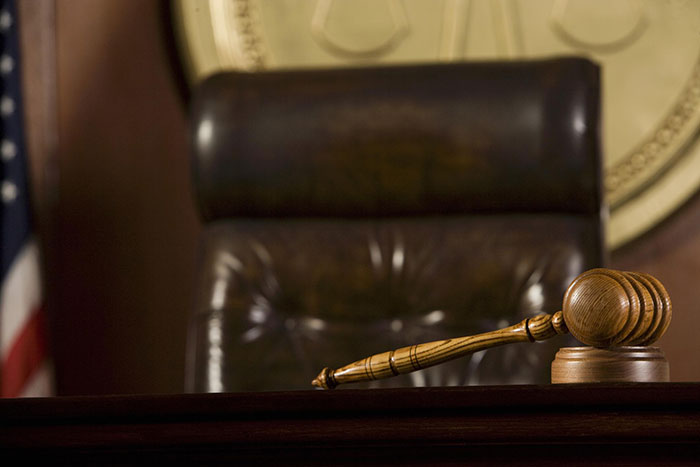
How Bad is Title IX Student Discipline?
Do you know what to expect from Title IX disciplinary hearings and procedures? Are you concerned about the severity of student discipline?
If so, we have answers. We understand that if your child faces a Title IX sexual assault complaint–even if it’s unfounded–you need to know where your child stands in a Title IX process and how it can affect his or her future. Our Texas Title IX attorney Neal Davis can help guide you through this challenging situation.
What are the penalties for a Title IX complaint?
First, you should know that Title IX discipline procedures and punishments can vary from one college or university to another. Such institutions are especially sensitive about the issue of sexual complaints, not only due to concerns for their students’ safety but also because failure to handle such situations properly can hit educational institutions in their bank accounts.
How can this happen? A 1972 federal law known as Title IX mandates that no one should be discriminated against due to their sexuality. If such discrimination — including sexual assaults — is found to have occurred at educational institutions that receive federal funding, such funding could be withdrawn. And such federal funding is widespread and common, even at private schools.
With their federal funding at stake, schools tend to aggressively pursue Title IX complaints–often at the expense of the accused students’ rights.
In fact, schools often proceed with their in-house investigations and hearings with a presumption of the student’s guilt, contrary to Americans’ long-standing, constitutionally protected right to a presumption of innocence in a legal matter. A presumption of guilt denies the due process that all Americans should receive in a court of law.
Yet such a presumption has become more common in this #MeToo era of men being more widely accused of sexual assault or rape, even though not every such claim is true.
False accusations can be the case with college sexual assault or college rape claims against young men – young men who face a system geared against them and who thus need legal expertise in their defense.
Otherwise, they could face Title IX penalties such as being suspended, expelled or placed on probation.
What are Title IX procedures?
When a student is accused of a sexual offense, a school’s Title IX investigations and proceedings are internal and administrative. That is, the case is not settled in a courtroom, but rather in an office on campus.
During this process, colleges and universities exercise certain advantages over accused students – advantages which would not be allowed in a court of law.
For example, Title IX disciplines and punishments may begin even before an investigation and a hearing are held.
An accused student may be suspended, placed on probation or even expelled from school even before they are fully aware of what’s happening.
Such Title IX punishments can be life-changing — even life-shattering, with the stigma of a Title IX university sanction remaining on their academic record. Yet such things can occur before the accused student has a chance to defend himself or herself.
By law, schools have 60 days to resolve a complaint, and many try to move much faster, acting perhaps just days after an alleged campus sexual assault. As a result, accused students have little time to prepare themselves for a hearing, at which they may be woefully unfamiliar with Title IX disciplinary procedures.
Also, even though a Title IX hearing is in an office, not a criminal courtroom, your son or daughter may face disturbing language from the Texas criminal code, including such terms as “rape” and “sexual assault”.
All of these factors show why it is vital that accused students engage an experienced Title IX defense lawyer or sexual assault defense attorney to handle their case.
Getting legal help from a defense attorney with in-depth experience in sex crime defense is the key. Such specialized legal assistance can mean the difference between a student clearing their name and facing a surprisingly quick and harsh punishment, such as being expelled and branded as a rapist.
Now you know how important it is to get strong legal representation in a Title IX complaint.
While having a law degree is necessary, it doesn’t guarantee a strong defense. Beware of lawyers who prioritize advertising over experience. Choosing a cheap lawyer could end up costing you more in the long run.
You might need to hire another lawyer to correct mistakes, pay high appeal fees, or face serious consequences like jail time and a criminal record.
What is a Title IX disciplinary hearing?
As for what to expect during a Title IX disciplinary hearing, that can depend on the individual educational institution.
In Texas, for instance, there are complicated and different Title IX discipline hearing procedures at different institutions, from Baylor University, TCU, SMU and the University of Texas to Texas A&M, Rice, Sam Houston State and the University of Houston.
Your Title IX complaint defense lawyer can ascertain and understand the disciplinary policies involved at a particular college or university—or perhaps at a high school, where Title IX complaints can also arise.

A hearing likely will be scheduled soon after the alleged event, and it will occur in an office on the school campus. That hearing may involve the introduction of evidence, witnesses and testimony, but make no mistake — it is NOT the same as a fair trial.
For one thing, college administrators often disregard the rights of an accused student in a Title IX complaint. (The student is known as a “respondent.”) In a court of law, those rights would include a presumption of innocence. But a school may treat an accused student as if they are guilty before a claim has even been investigated.
That means it’s likely that your son or daughter will have far fewer rights granted in a Title IX hearing than a person would have in a criminal or civil court.
A Title IX Coordinator is NOT a lawyer
A university’s “Title IX Coordinator” is not a lawyer.
Yet, they handle serious investigations that can lead to serious punishments, such as expulsion from school and a permanent stain on a student’s record.
While such punishments may not be as severe as those handed down upon conviction in a criminal court — punishments such as jail time or fines – they still leave their mark, yet they are decided in proceedings which do not necessarily protect the rights of the accused.
In effect, schools may use a law designed to defeat discrimination to actually discriminate against their own students when those students are accused of a sexual offense.
As a result, some students have filed lawsuits against colleges that unfairly suspended or expelled them.
This isn’t to say educational institutions should not seek justice and should not discipline students who have committed campus rape or sexual assault.
Not everyone is guilty, and the odds often seem to be stacked against the accused.
Title IX may not be fair
Indeed, while Title IX is a worthy law, its application can be unjust or unfair.
Some young men who have been accused of campus rape or sexual assault may, in fact, have had consensual sex, though this was later denied by the accuser. Yet evidence often can be found to substantiate that the sex was consensual, notably via the accuser’s social media postings before and after an alleged assault.
Of course, such things must be argued and proven. Yet some colleges discourage accused young men from engaging legal counsel and expect them to defend themselves against a claim of a school sex assault or college rape.
This is wrong, and it only suits the accuser and the educational institution. An accused student has a right to have a Title IX defense lawyer as an adviser on their case, both during investigations and during disciplinary hearings.
Don’t let your son or loved one be railroaded by a college or university that’s more concerned with preserving its federal funding than finding the truth.
Athletes can now play during sexual misconduct probes
New federal regulations allow accused college athletes to continue playing while sexual misconduct investigations are conducted.
Can I have a Title IX defense lawyer?
Even though some schools discourage students from engaging legal counsel (most do not), you can have a Title IX defense lawyer to help your family through the process.
Most schools allow an accused student, as with the accuser, to have an adviser for the hearing. The adviser can be anyone — including an attorney. That is thanks to the Campus SaVE Act designed to protect women against violence.
Campus SaVE Act Provisions
More formally known as the Campus Sexual Violence Elimination Act, Campus SaVE enables alleged victims of campus sexual violence to:
- Be assisted by campus authorities if reporting a crime to law enforcement.
- Change academic, living, transportation or working situations to avoid a hostile environment.
- Obtain or enforce a no-contact directive or restraining order.
- Have a clear written description of their institution’s disciplinary process and know the range of possible sanctions.
- Receive contact information about counseling, health, mental health, victim advocacy, legal assistance and other services available both on-campus and in the community.
That’s a lot of rights for the accuser, ultimately to be enforced by the federal Department of Education.
But what about the rights of the accused student?
For that, we turn to Campus SaVE’s provisions for Title IX discipline proceedings following an accusation of sexual assault, rape, stalking, dating violence or sexual harassment.
Those provisions set these minimum standards for students on both sides, including the respondent or accused student:
- A prompt, fair and impartial investigation and resolution should be conducted by officials receiving annual training on domestic violence, sexual assault and stalking.
- Both parties may have others present during an institutional disciplinary proceeding and any related meetings, including an adviser of their choice.
- Both parties will receive written outcomes of all disciplinary proceedings at the same time.
These provisions for Title IX discipline at least assure that your son or daughter has a right to an adviser, who can be a Title IX discrimination attorney provided by our law firm.
The bottom line: Clearly, accused students have a much better chance of standing up to a questionable system and then gaining justice if they have a skilled Title IX defense attorney at their side at the Title IX discipline hearing.
Don’t wait for an appeal
Even if you believe your child’s case is so strong that he or she will never be disciplined after the truth is presented, you shouldn’t wait to engage a Title IX lawyer. If you do, and your child is found guilty and faces punishment, you often have a very short time period in which to prepare an appeal.
It’s best to avoid such an outcome by engaging a knowledgeable Title IX lawyer as soon as possible after a complaint has been made, even it’s clear to you that it is a false sexual assault accusation. Your child’s future is too important to fail to secure the staunch legal defense he or she needs.
Get a Houston Title IX defense attorney immediately
After a campus sexual assault claim has been made, it’s time for you to take charge and fight back. To do so, hire the best Title IX defense lawyer you can find. Get an experienced and skilled Houston Title IX defense attorney to represent your son or daughter.
Contact us at the Neal Davis Law Firm today and let us help. We stand ready to defend students who have been falsely accused of college rape or college sexual assault.
Our defense attorneys can quickly provide you with a confidential legal review of the Title IX case and advise you on how to proceed.
The next step is up to you.
“Neal represented our son and the case against him was dismissed…Neal took time to understand our needs and truly appreciate our values and to convey to the Court…the case details and the circumstances of how our son was himself victimized… our son, who is an honor student, was completely exonerated.”
Learn More About Sex Crime Defense
- Overview of Sex Crime Defense
- Child Sex Offenses
- Child Pornography Possession Defenses
- Online Solicitation of a Child
- Texas Sex Crime Law
- Indecency with a Child by Contact
- Indecency with a Child by Exposure
- Aggravated Child Sex Abuse
- Child Molestation Defense
- Continuous Sexual Abuse of a Child
- Improper Teacher / Student Relationships
- Hiring a Sexual Assault Defense Lawyer
- Sexual Assault of a Child (Statutory Rape)
- Title IX Defense & Campus Sexual Assault













